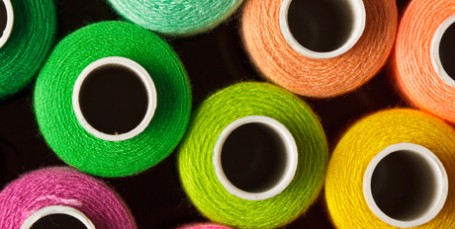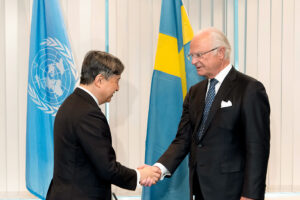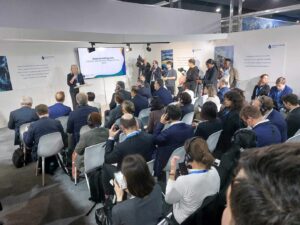Fashion Industry mixes with Water at Swedish Political Gathering
Last week, the who’s who of Swedish politics, business, and media gathered for the Sweden’s iconic debate festival, Almedalen. A number of Sweden’s leading fashion brands including KappAhl and Indiska got together with SIWI and the Swedish International Development Cooperation Agency (Sida) to discuss the importance of water, and what they are doing to take responsibility for its use in fashion production.
“I was surprised of how well the Swedish fashion industry collaborates,” said Fredrika Klarén, Sustainability Manager at KappAhl (formerly of IKEA). This was a key takeaway from Klarén to an engaged audience at Almedalen on 2 July, referring to the Sweden Water Textile Initiative (STWI).
KappAhl, Indiska and Lindex started the STWI initiative five years ago with the ambition to see behavior change in their Indian suppliers’ and sub-suppliers’ use of water, chemicals and energy. Together with SIWI, with support from Sida, the companies put together guidelines for the sustainable use of water and chemicals. The guidelines were consequently implemented in more than 40 textile factories, including the training of 4000 factory workers in sustainable water production methods.
“The results were impressive,” said Torgny Holmgren, Executive Director of SIWI. Indeed, 284 million litres of water and 402 tonnes of chemicals were saved annually significantly reducing energy costs. “This is a clear and concrete proof of how sustainable practices are profitable for businesses,” he continued.
“We really want to stimulate other branches to take action,” said Charlotte Petri Gornitzka, Secretary General of Sida. Sida has initiated the Swedish Leadership for Sustainable Development network – of which SIWI is also a member – to encourage more than 20 of Sweden´s biggest companies to find sustainable solutions and business opportunities in the challenges that our planet faces today.
“STWI and the SLSD are examples of Sweden taking leadership and collaborating. These examples will be brought forward at the Conference on Finance for Development in Addis Ababa later in July and the UN General Assembly meeting in New York in September,” said the Secretary General.
Scaling up, the STWI initiative is today also working with suppliers in China, Turkey, Bangladesh and Ethiopia – countries that are water stressed. Today more than 20 Swedish and international textile and leather brands – such as H&M, Odd Molly and Filippa K – are members of the initiative and are cooperating for common reform.
KappAhl´s Klarén underlined the importance of expanding the collaboration with suppliers and sub-suppliers. “Collaboration is key for sustainable productions,” she said. Klarén suggested that other branches find a suitable organization or facilitator platform that can bring them together in truly a cooperative manner to influence sustainable behaviours. “Together, we can put more pressure on our suppliers.” SIWI is currently working on other branch initiatives, notably in the areas of food and beverages, as well as pharmaceuticals.








